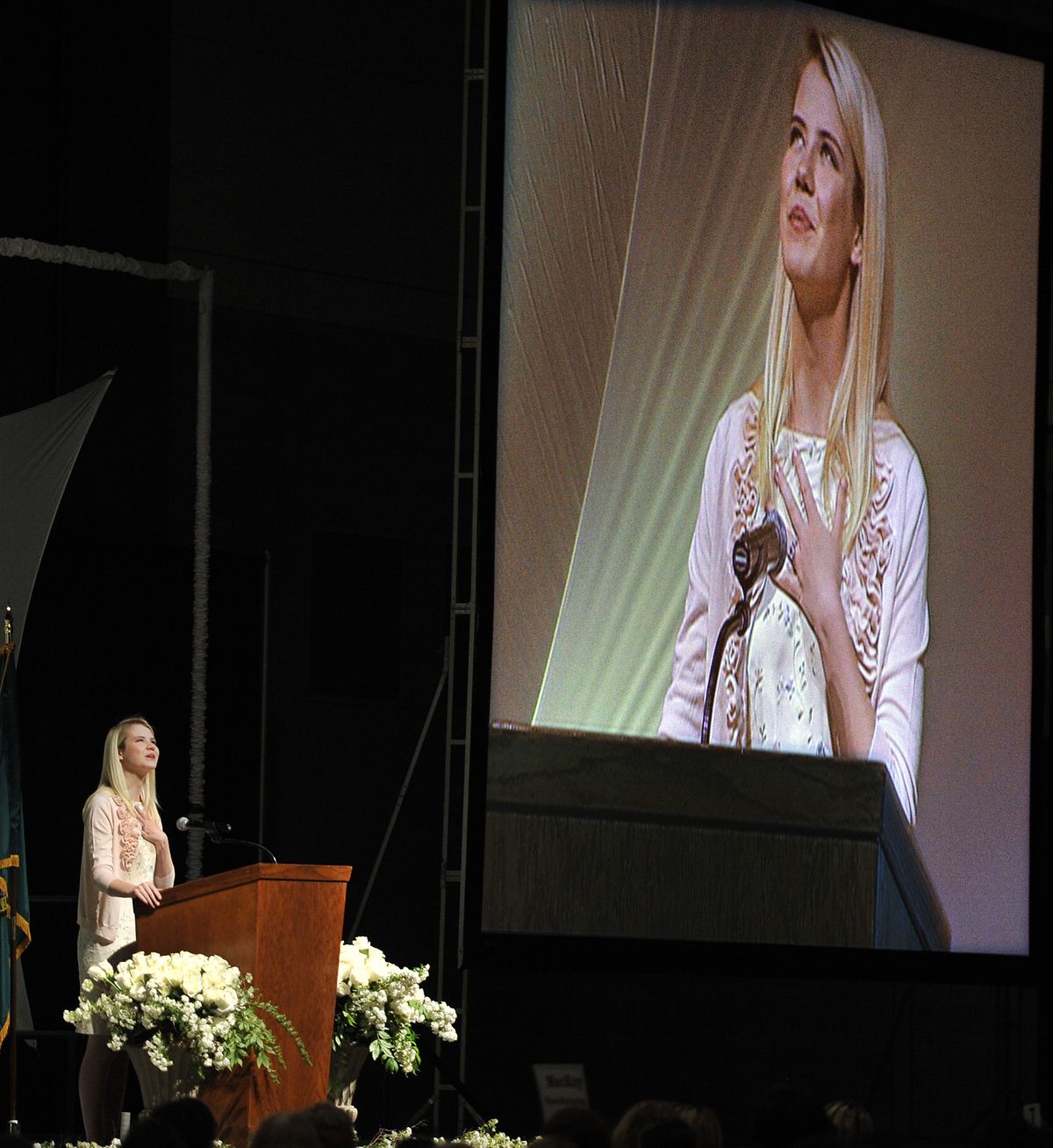Smart shares her life’s low and highs
Former kidnap victim now promotes children’s safety, empowerment

More than 2,100 people greeted Elizabeth Smart with a standing ovation at the 20th annual Women Helping Women Fund luncheon on Monday.
Smart, who was abducted from her Utah home in 2002 and rescued nine months later, is now advocating for safety programs and legislation that protects children from abduction.
Guests at the luncheon sat riveted as Smart matter-of-factly shared the story of her kidnapping.
But an interview prior to the luncheon revealed that Smart is no longer the terrified teen whose ordeal captured the attention of the nation. She’s a vibrant, confident, newly married 24-year-old woman.
Her life has changed in ways she couldn’t have foreseen 10 years ago, she said.
“Who ever thinks they’re going to do public speaking or be a child advocate?” she asked. “But I’m able to make a difference in a way I never thought possible. I mean, it’s really startling, amazing and humbling.”
Some things remain unchanged in her life: her love of music and her faith in God. She started playing the harp at age 5 and still plays, but said, “Right now it’s for my own enjoyment. I have my harp set up in the spare bedroom, slash storage room, slash closet,” she said with a laugh. “That’s my space.”
In fact, music helped her recover from the ordeal. “It’s been an outlet,” she said. “If I was upset or unhappy, playing the harp was a good release. It’s calming and soothing.”
Raised in a devout Mormon family, Smart said her religious faith remains unshaken. “I’ve always believed in God. I’ve always believed that he’s never abandoned me,” she said. “I’ve always believed he’s been there, and I still believe that today.”
She paused and reflected on what her experience has taught her about God. “If I’ve learned anything more about him, it’s that our lives are really so delicately woven. We think there are chance meetings, but somehow they were all divinely orchestrated.”
Smart admits to having “Why me?” moments, but said she truly believes that good can come from adversity, “whether it’s a door that opens up down the road, or just the experience that it gives you to prepare you for the future.”
As for her future she said: “I’m most looking forward to being a mom.” Then she smiled, adding, “But I don’t know when that will happen.”
In the meantime, Smart is passionate about her work. She’s established the Elizabeth Smart Foundation to promote radKIDS, a personal empowerment safety education program. “I’d like to see radKIDS in all the schools,” she said. “I feel very strongly about the work I do: raising awareness about issues that are hard to talk about.”
For those who are struggling to move past a traumatic event, she offered this advice: “Try to go back to the things you loved before.” For Smart, that’s been her music, but she urged others to be patient with themselves and to realize that they may not enjoy the same things they used to.
Even simple pleasures might change, especially if they’re associated with the trauma. “I don’t like peanut butter sandwiches anymore,” said Smart. She had her fill of them during her months of captivity.
She also advised, “Never feel pressured to be better. You don’t have to be better in a certain time frame.”
When asked why she thinks her story still resonates, Smart said with a smile: “People love the happy ending. For as much bad as we hear in the news every night, there are so many wonderful things going on.”
And that’s what Smart wants people to consider when they hear her name. “I want them to think of hope,” she said. “Miracles do happen.”